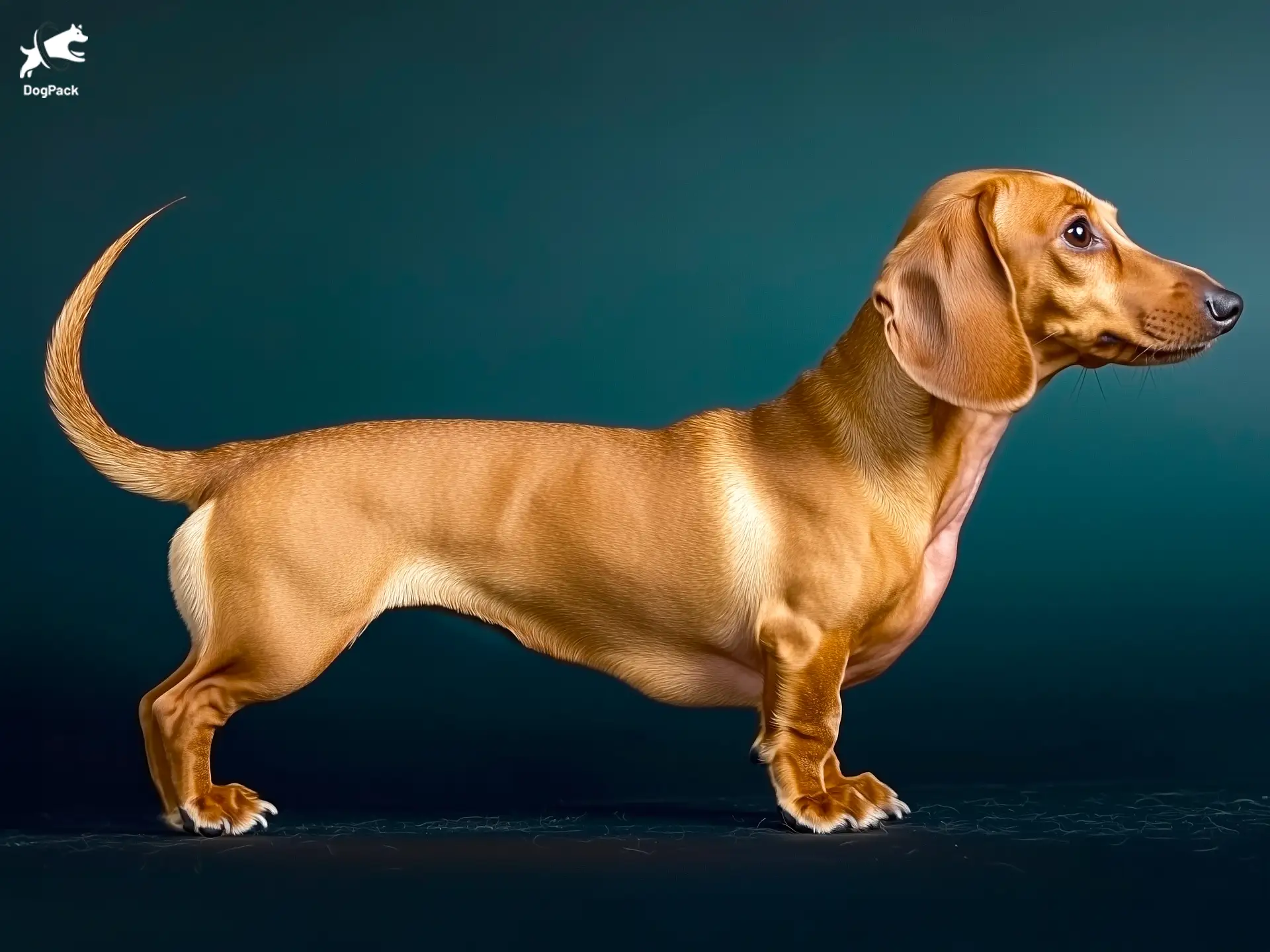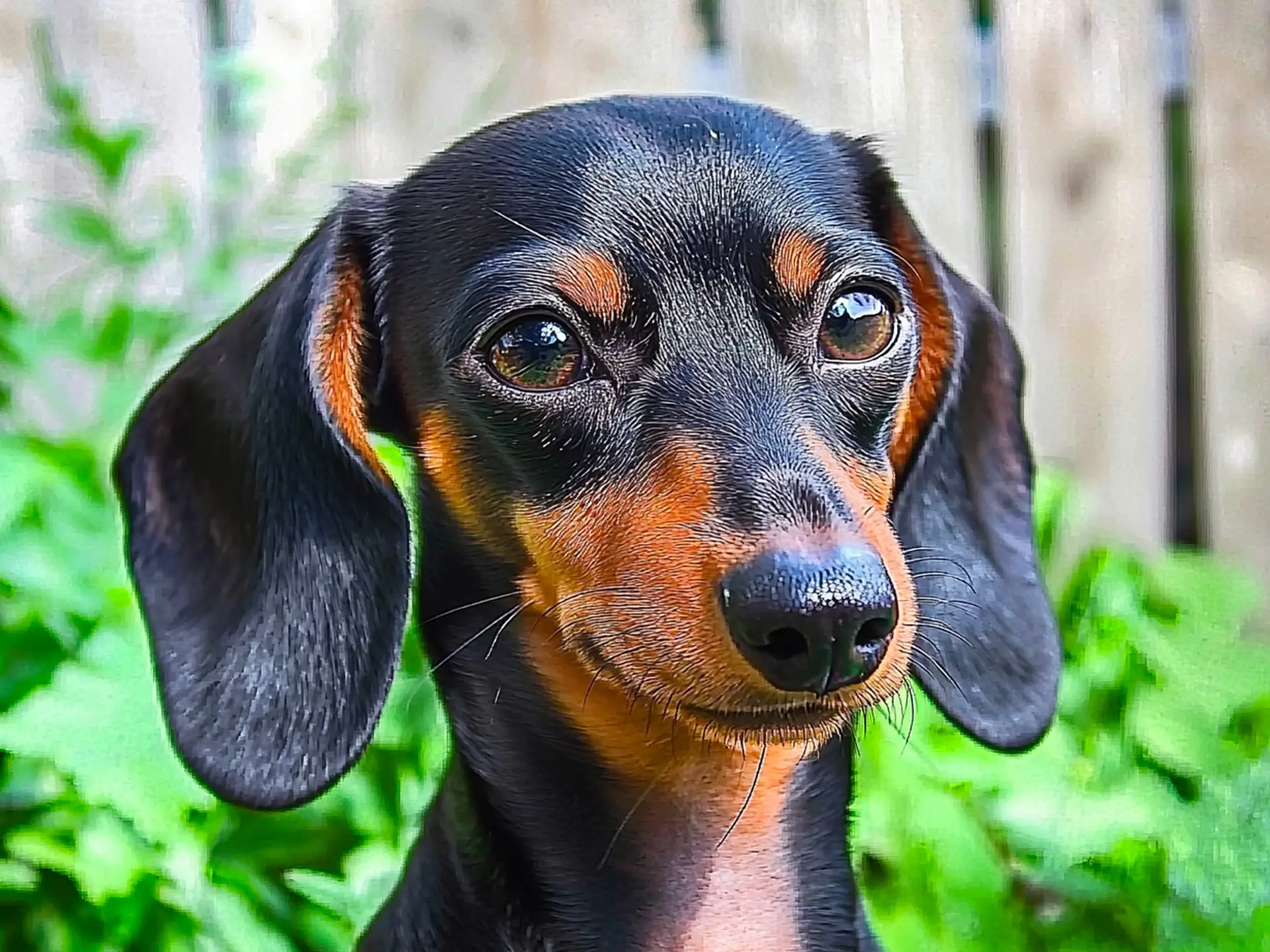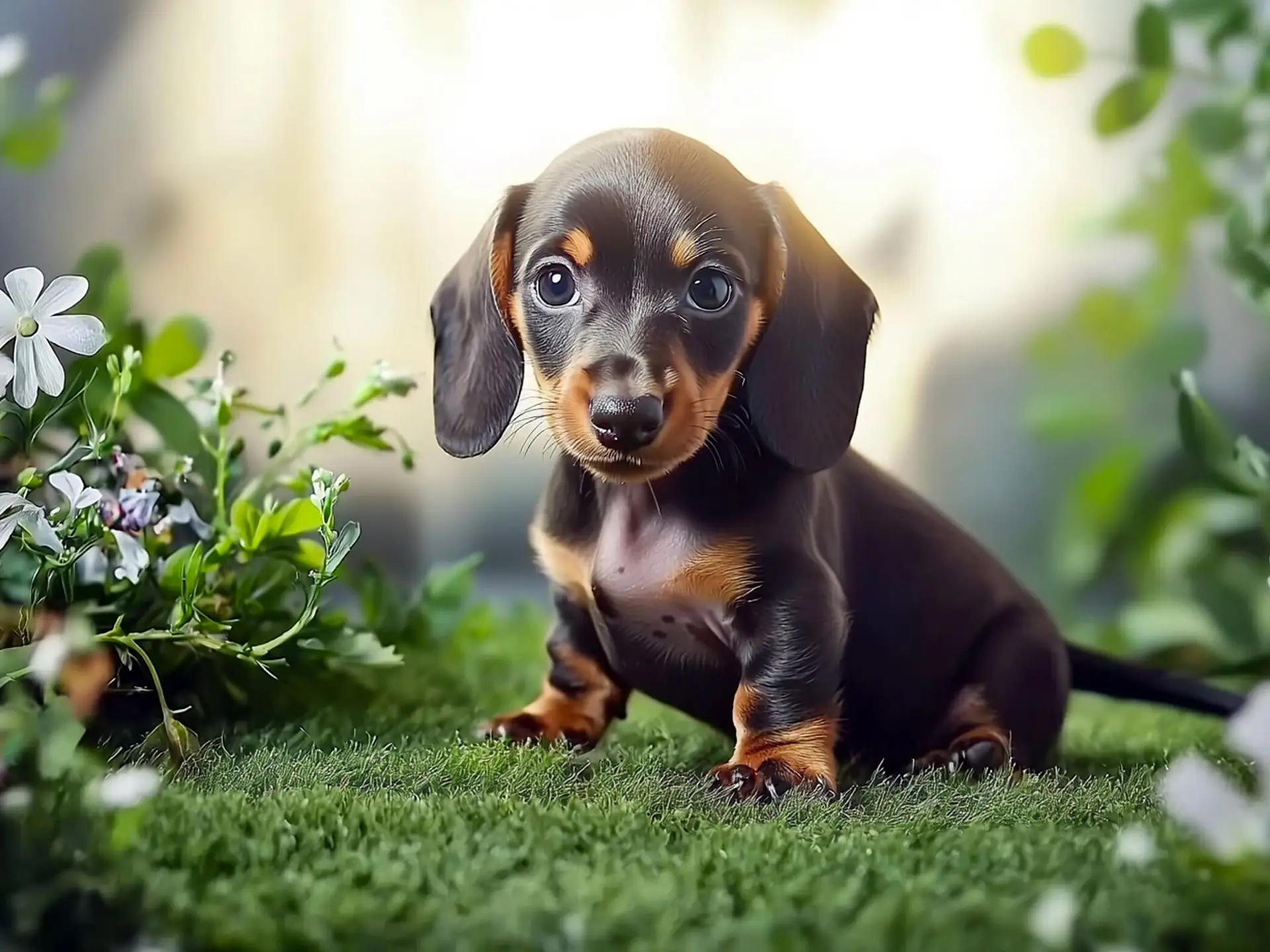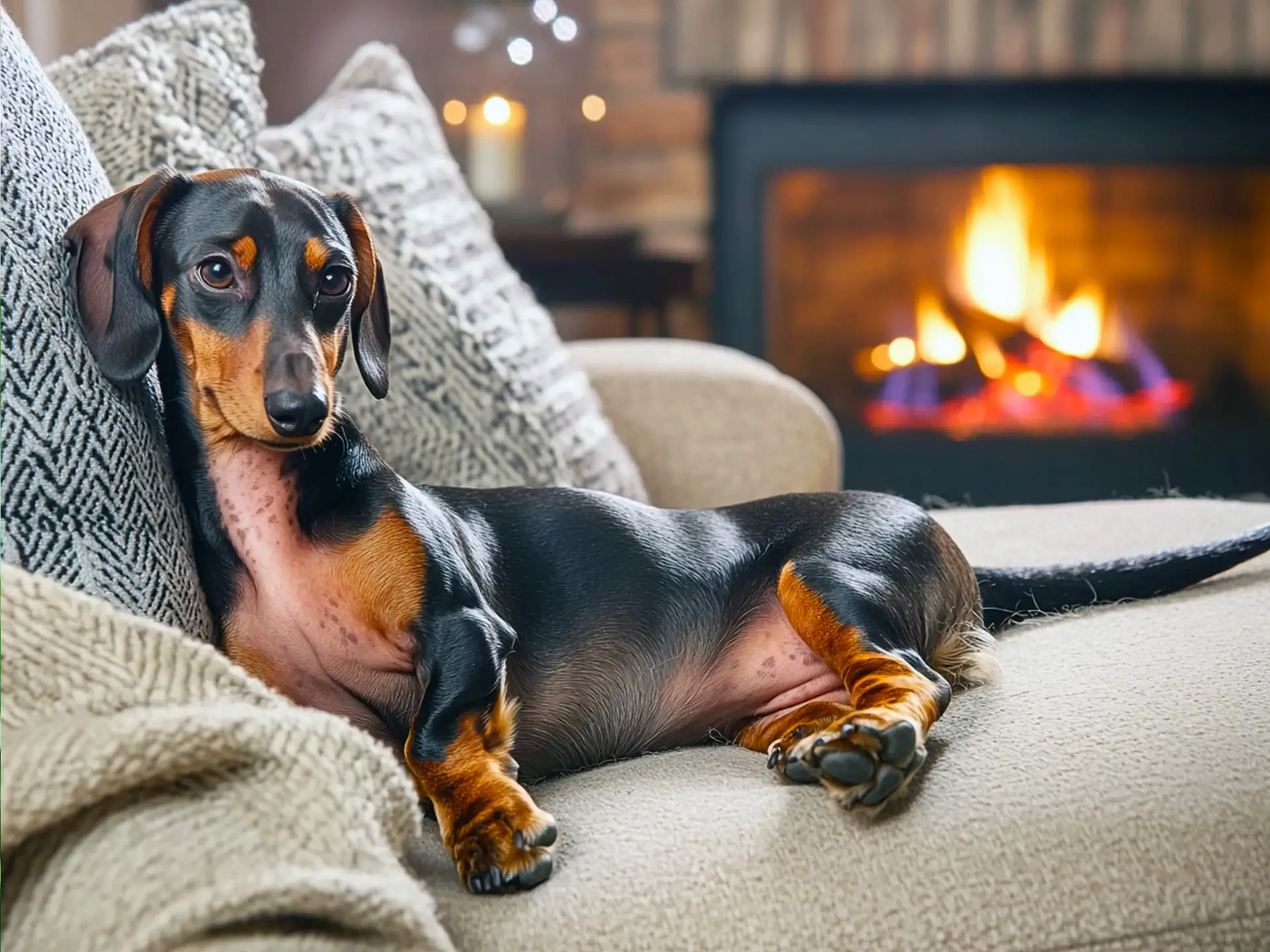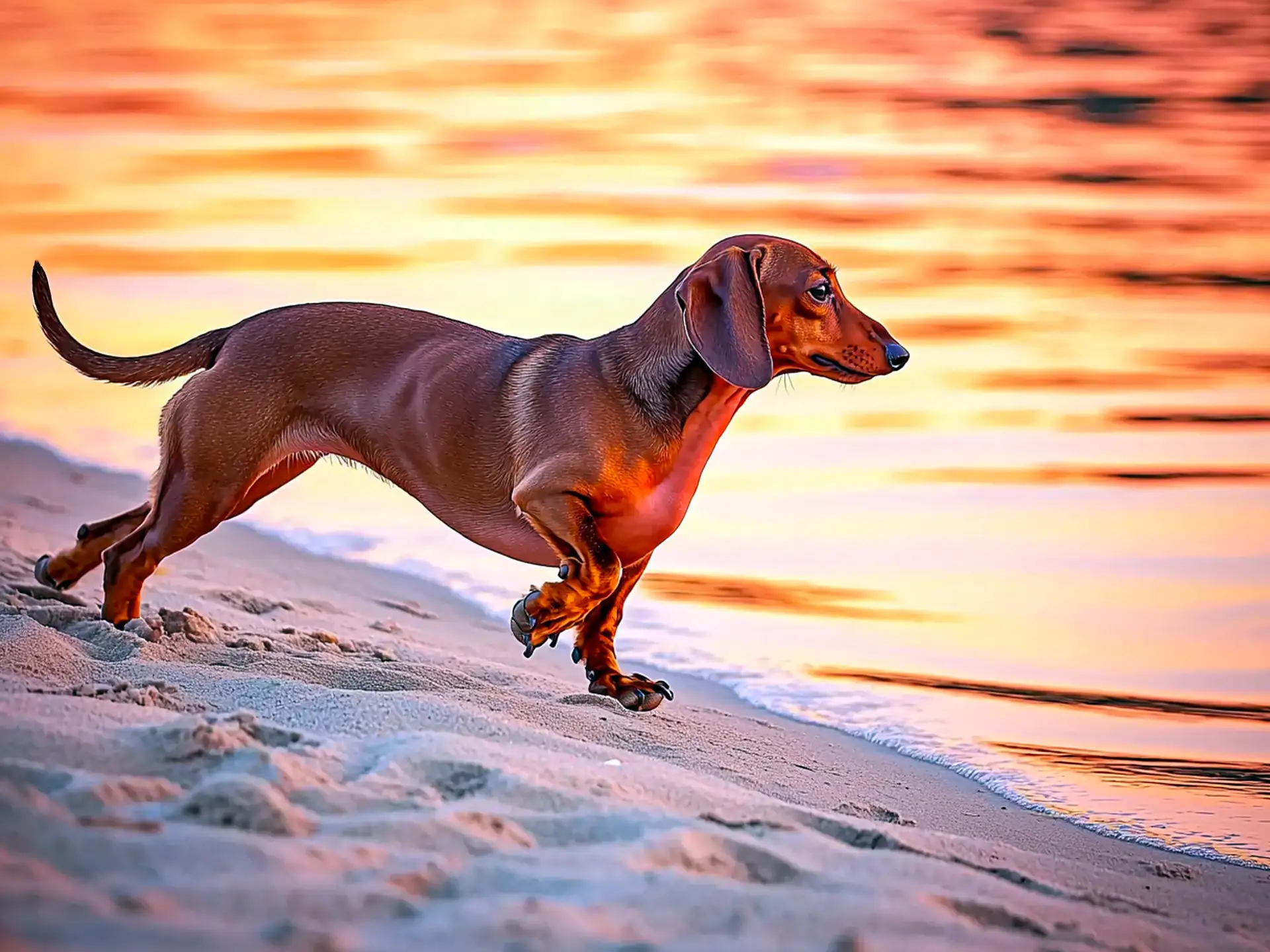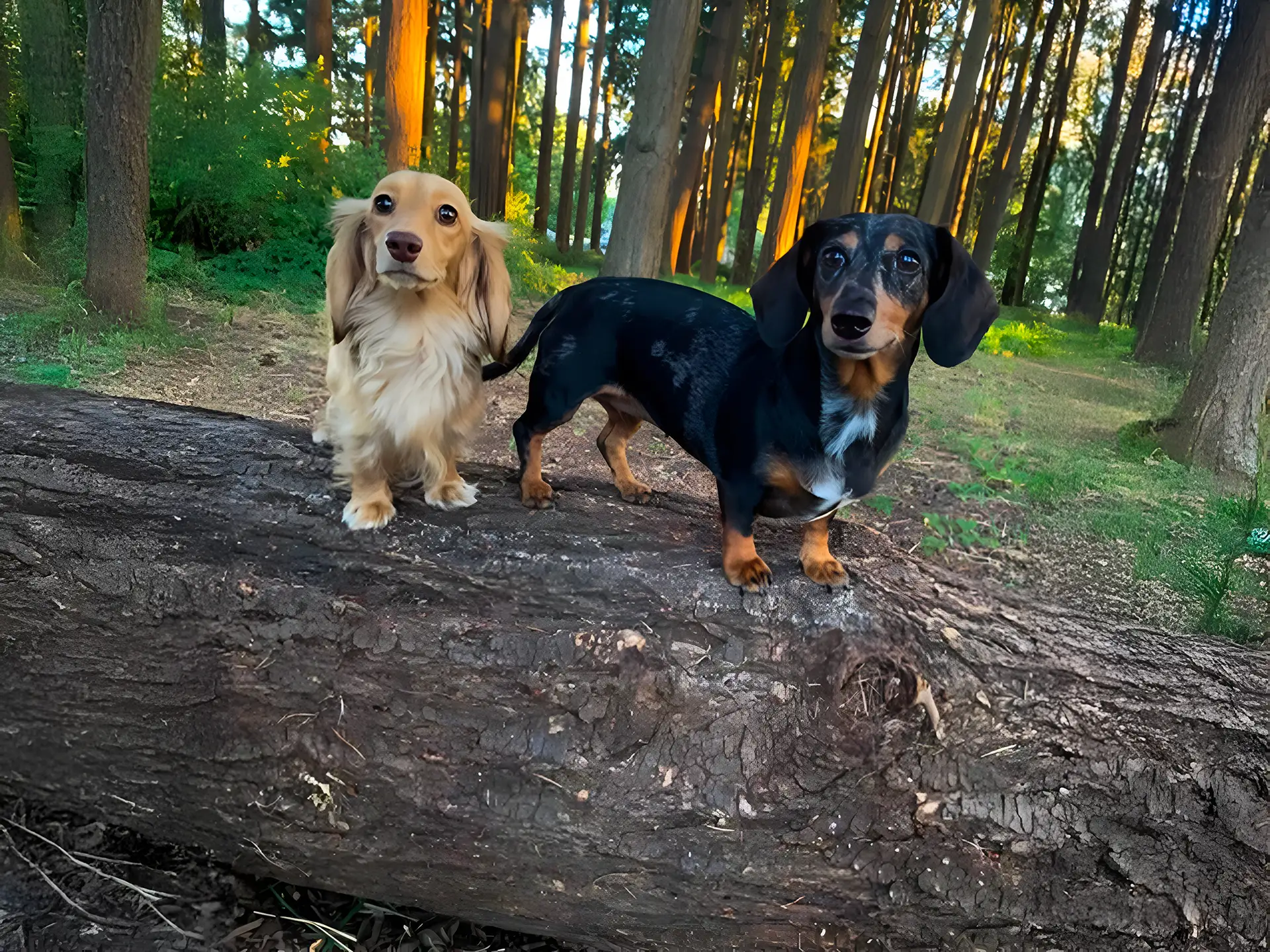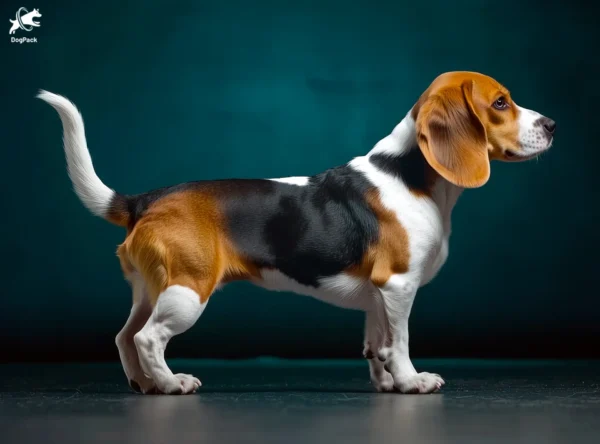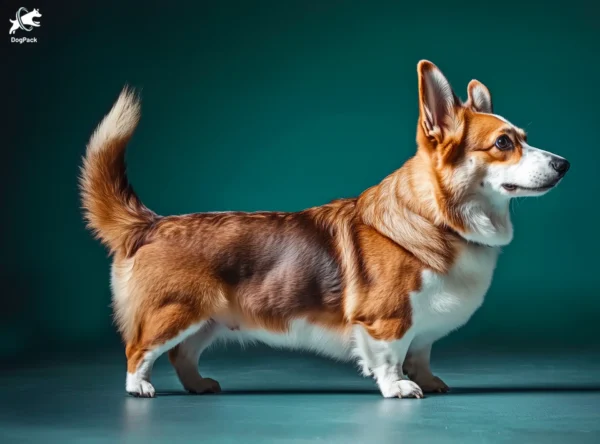Dachshund Dog Breed Info & Overview
The Dachshund, with its distinctive long body and short legs, is truly a breed apart. Originally bred in Germany for badger hunting, this small dog packs a big personality, filled with courage and cleverness. Known for their loyal and family-oriented nature, Dachshunds are spirited companions that bring both charm and devotion to any home. Let’s dive into what makes the Dachshund such a beloved and unique breed.
Characteristics
Pictures
Breed History
The Dachshund’s design wasn’t just a quirky idea—it was built to battle badgers! “Dachs” means badger in German, and these little warriors were first bred in 15th-century Germany with their long, low bodies perfectly suited for tunneling into dens and flushing out pesky critters. Think of them as the original subterranean specialists.
As the years rolled on, Dachshunds expanded their hunting repertoire to foxes and even wild boar. Their courage and tenacity made them indispensable in the field, but by the 19th century, they’d charmed their way from forest to fireplace. Dachshunds became beloved pets, traveling across Europe as companions.
Today, Dachshunds are known more for their charisma than their hunting skills, appearing everywhere from famous films to family couches. Their unique history and bold spirit have made them icons, leaving an indelible pawprint on dog lovers’ hearts around the world.
Temperament, Personality
These tiny bodies pack big personalities! Dachshunds are famously clever, with a stubborn streak that can be both amusing and exasperating. They love to be in the limelight and have no problem being a bit dramatic to get there. And while they may be small, their “big dog” attitude will let you know who’s boss.
With their humans, Dachshunds are affectionate and fiercely loyal. They might start off wary around strangers, but once they’ve scoped things out, their charm usually wins the day. Thanks to their hunting genes, they can get a bit feisty if they spot a squirrel or bird—so hang on to that leash!
Dachshunds do well with children, but due to their delicate backs, kids should be taught how to handle them carefully. Socialized young, they can also fit in well with other pets, though they may just try to be the alpha of the pack, regardless of size.
Physical Characteristics
The Dachshund’s iconic silhouette is unmistakable: long body, short legs, and an expressive face that’s equal parts curiosity and mischief. They come in two sizes—standard and miniature—and three coat types: smooth, long-haired, and wire-haired, each lending a unique charm to the breed.
Standard Dachshunds weigh between 16-32 pounds (7-15 kg), while their mini counterparts max out at around 11 pounds (5 kg). Their almond-shaped eyes sparkle with intelligence, and their long, floppy ears add a dash of cuteness that’s hard to resist.
With colors ranging from rich reds to sleek black and tan, to rare dapple patterns, there’s a Dachshund look for every taste. Despite their compact stature, they carry themselves with confidence, a little sass, and a sense of purpose that’s hard not to admire.
Health Issues
Dachshunds’ adorable long backs, while endearing, can lead to some health challenges. The most common issue is Intervertebral Disc Disease (IVDD), which can cause back pain and mobility problems. Keeping their weight in check and minimizing jumping helps keep their spine healthy.
Obesity can worsen back issues, so a balanced diet and regular exercise are essential. Dental care is also a must—Dachshunds can be prone to plaque buildup, so brush those teeth regularly or offer dental chews as a tasty treat!
Eye conditions like Progressive Retinal Atrophy (PRA) can occasionally occur, so regular checkups with a vet are wise. Some owners even invest in pet insurance for peace of mind, knowing their Dachshund is well-protected.
Grooming Needs
Dachshunds are surprisingly low-maintenance, though grooming depends on coat type. Smooth-coated Dachshunds need an occasional brushing to manage loose fur—easy and efficient for busy owners.
Long-haired Dachshunds require more attention to prevent mats and tangles. A gentle comb through their silky coat keeps them looking dapper. Wire-haired Dachshunds benefit from a couple of hand-stripping sessions a year to maintain their rugged, textured look.
Regardless of coat type, all Dachshunds need regular ear checks to avoid infections, nail trims to stay comfortable, and a bath every so often to keep them fresh and clean. They might act like royalty, but a little pampering goes a long way with these pups!
Exercise Requirements
Despite their tiny legs, Dachshunds have a surprising amount of pep in their step! They enjoy daily walks, playtime, and activities that stimulate their minds. Aim for 30 to 60 minutes of exercise a day—no excuses, rain or shine!
Thanks to their hunting background, they excel at scent games and treasure hunts. A simple game of hide-and-seek with treats can keep them entertained for hours. Just be cautious with activities that involve jumping, as it can stress their sensitive spines.
Apartment-friendly yet energetic, Dachshunds thrive when they get their outdoor time. Keeping them engaged prevents boredom, which can otherwise lead to some serious mischief-making around the house!
Training Tips
Training a Dachshund is like negotiating with a mini mastermind. Their intelligence means they learn fast, but their independence means they can be a tad, well… opinionated! Positive reinforcement with treats and praise is the best approach.
Consistency is key. Short, fun sessions are ideal to keep them interested. House training may require extra patience, so persistence pays off. Many owners find crate training helpful, providing both structure and a cozy den for their Dachshund.
Socializing them from a young age helps curb any possessive tendencies. Dachshunds respond better to rewards than reprimands, so make training a game they want to win!
Nutrition, Diet
Dachshunds require a balanced diet to keep them fit and prevent extra pounds from stressing their backs. They typically eat between ½ to 1½ cups of high-quality dry food daily, divided into two meals. Protein-rich food keeps their muscles strong, while glucosamine-rich options support joint health.
Some Dachshunds can be sensitive to certain foods, so monitor for any signs of allergies. To avoid overfeeding, limit treats and consult with a vet to tailor their diet. Fresh water is a must, especially after a good game or walk.
Avoiding obesity is critical for their health, so watch those portions. A well-fed Dachshund is a happy, healthy companion ready for adventure!
Adoption, Breeders
If you’re looking for a Dachshund, adoption is a fantastic option. Organizations like the Dachshund Rescue of North America can help match you with a pup in need of a loving home. Breed-specific rescues often have both puppies and adults available.
If you’re seeking a puppy from a breeder, research thoroughly. Reputable breeders will prioritize health and temperament over profit, allowing you to meet the puppy’s parents and see health screenings. The American Kennel Club has a breeder directory to get you started.
Avoid pet stores or online listings with questionable sources. Whether adopting or buying, make sure you’re prepared for the unique adventure that is owning a Dachshund!
Family Pet?
Dachshunds make delightful family pets with their affectionate, spunky personalities. They’re known to be playful and endearing, bringing joy to both adults and children. Their small size makes them manageable, though their big attitudes keep things exciting!
Due to their back sensitivity, gentle handling is a must—especially around younger kids. Dachshunds thrive in families who understand their needs and can keep them entertained.
With other pets, early socialization helps them get along well. Dachshunds may have a touch of “big dog syndrome,” so a proper introduction is advised. Overall, they make loving additions to families who appreciate a little sass in their canine friends.
Right For You?
Considering a Dachshund? These spunky companions are a great fit for those who enjoy both the charm and the quirks of a small yet mighty dog. They do well with owners who can give them attention and affection and are mindful of their unique needs.
Dachshunds fit a range of homes, from apartments to houses with yards. Their moderate energy level makes them adaptable, but they thrive on companionship and mental stimulation.
If you’re up for their unique personality, including a touch of stubbornness, a Dachshund may be your perfect match. They bring joy, laughter, and a bit of mischief into any home ready to embrace them.
Conclusion
In the end, Dachshunds are more than their unique looks—they’re spirited, loyal, and endlessly entertaining. While they have specific needs, like careful handling to protect their back and consistent training to manage their independent streak, the rewards are priceless. If you’re after a small dog with a big personality, the Dachshund could be just what you’re looking for. They’re adaptable, affectionate, and full of character, bringing endless joy to any home lucky enough to have one.
FAQs
-
Do Dachshunds make good pets for first-time dog owners?
Dachshunds can be good for first-time owners who are prepared for their specific needs. They are affectionate and adaptable but can be stubborn. Consistent training and patience are key to managing their independent nature.
-
Do Dachshunds bark a lot?
Yes, Dachshunds are known to be vocal and may bark frequently. They were bred to alert hunters, so barking is in their nature. Training can help manage excessive barking, but expect some level of vocalization.
-
Can Dachshunds live with cats?
With proper introduction and socialization, Dachshunds can live with cats. However, their hunting instincts might trigger them to chase. Supervised interactions and gradual introductions are essential for a harmonious multi-pet household.
-
Are Dachshunds difficult to housebreak?
Dachshunds can be somewhat challenging to housebreak due to their stubbornness. Patience and consistent routines are important. Crate training and positive reinforcement can make the process smoother.
-
What types of coats do Dachshunds have?
Dachshunds come in three coat types: smooth, long-haired, and wire-haired. Each type has different grooming needs and gives the breed a distinct appearance. Choosing a coat type depends on your grooming preferences.
Breed Ratings
Dachshunds are smart and can learn quickly, but their independent streak may make training a bit challenging at times.
This breed is full of energy and loves to play, making them great companions for interactive games and fun activities.
They have moderate energy levels, enjoying daily walks and play but also appreciating downtime with their family.
Shedding varies by coat type but is generally moderate. Regular brushing helps manage loose hair.
Dachshunds have a high prey drive due to their hunting heritage, so they may chase small animals if not properly trained.
Grooming needs depend on coat type. Smooth coats are low-maintenance, while long-haired and wire-haired require more care.
They are intelligent but can be stubborn. Consistent, positive training methods yield the best results.
Dachshunds prefer company and may experience separation anxiety if left alone for long periods.
They are vocal dogs and tend to bark frequently, which can be managed with training.
Dachshunds are not known for drooling much, making them a good choice for the tidy home.
With proper socialization, they can get along with other dogs but may assert dominance despite their size.
They are generally healthy but prone to specific issues like back problems; regular vet care is important.

